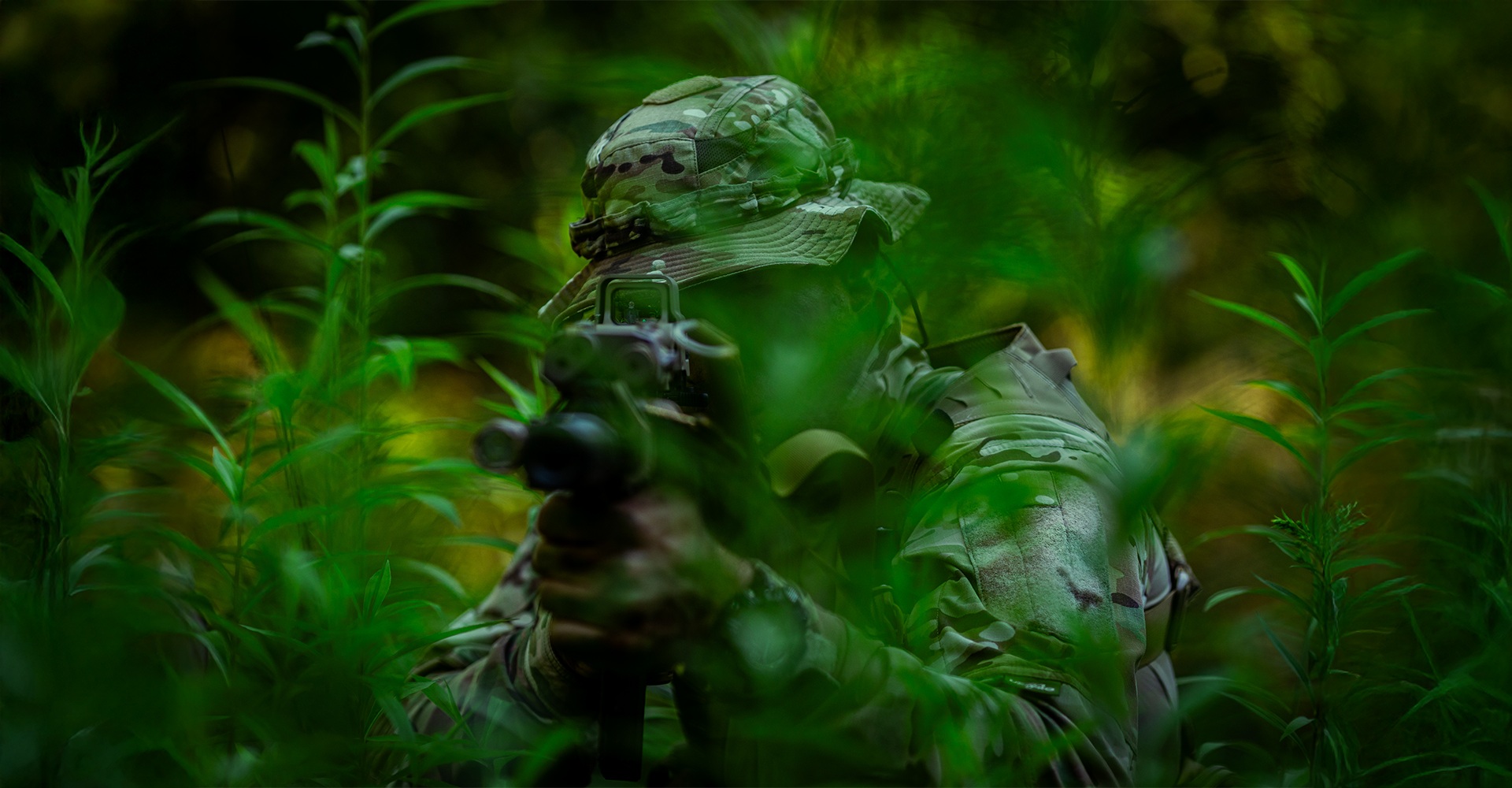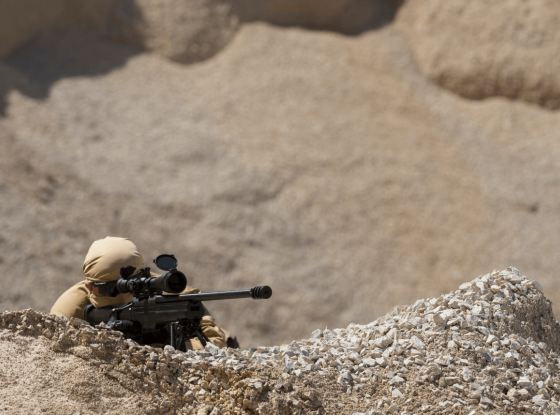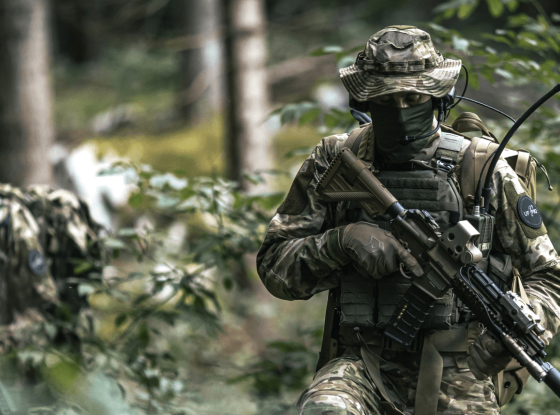The jungle doesn’t take sides. It challenges everyone equally, presenting a relentless test of endurance, adaptability, and preparedness. You might be the fittest in your unit, but without mental resilience and adequate preparation, even the best physical condition can fall short.
In this blog post:
By Steve Heaword
Jungle warfare requires more than just physical strength; it demands the capability to survive and function effectively in one of the most challenging environments on the planet. It’s not merely about entering the jungle; it’s about thriving amidst its unique and demanding conditions.
Building the Right Skills
Jungle warfare demands a specific skill set designed for the harsh conditions. Start your preparation with these essential steps:
- Physical Fitness: The jungle's terrain is relentless. Enhance your strength, stamina, and agility to tackle its obstacles. Concentrate on building upper body strength for climbing, core stability for balance, and cardio endurance for sustained efforts. Flexibility exercises are also essential to reduce injury risks and improve mobility.
- Tactical Drills: Engaging in realistic training scenarios hones your skills for jungle warfare. Practice stealth maneuvers, ambush tactics, and quick responses to threats. These exercises ensure you’re ready for both offensive and defensive situations. And for more about the right gear to support these operations, take a look at Garments in Jungle Operations to understand how clothing choices can make a difference when navigating dense jungle.
- Adapting to the Environment: Grasp the jungle’s unpredictability. Learn to spot edible plants, navigate terrain hazards, and identify signs of potential threats like animal tracks or venomous creatures. Being familiar with your surroundings can be a lifesaver. If you’re wondering how to blend into the environment better, read Mastering Tropical Camouflage Patterns, which explains how camouflage plays a key role in the jungle.
- Mental Resilience: The jungle doesn’t just test your body—it challenges your mind. In such a demanding environment, being mentally tough is just as crucial as being physically fit. Train yourself to remain calm under pressure by practicing techniques like deep breathing to manage stress and maintain your focus. Mental resilience sharpens your decision-making skills when conditions become challenging, allowing you to respond quickly and effectively. Practice visualizing various scenarios to prepare your mind for the unpredictable challenges of jungle warfare. Since silent running is often necessary, get used to communicating with few words and relying on clear signals.
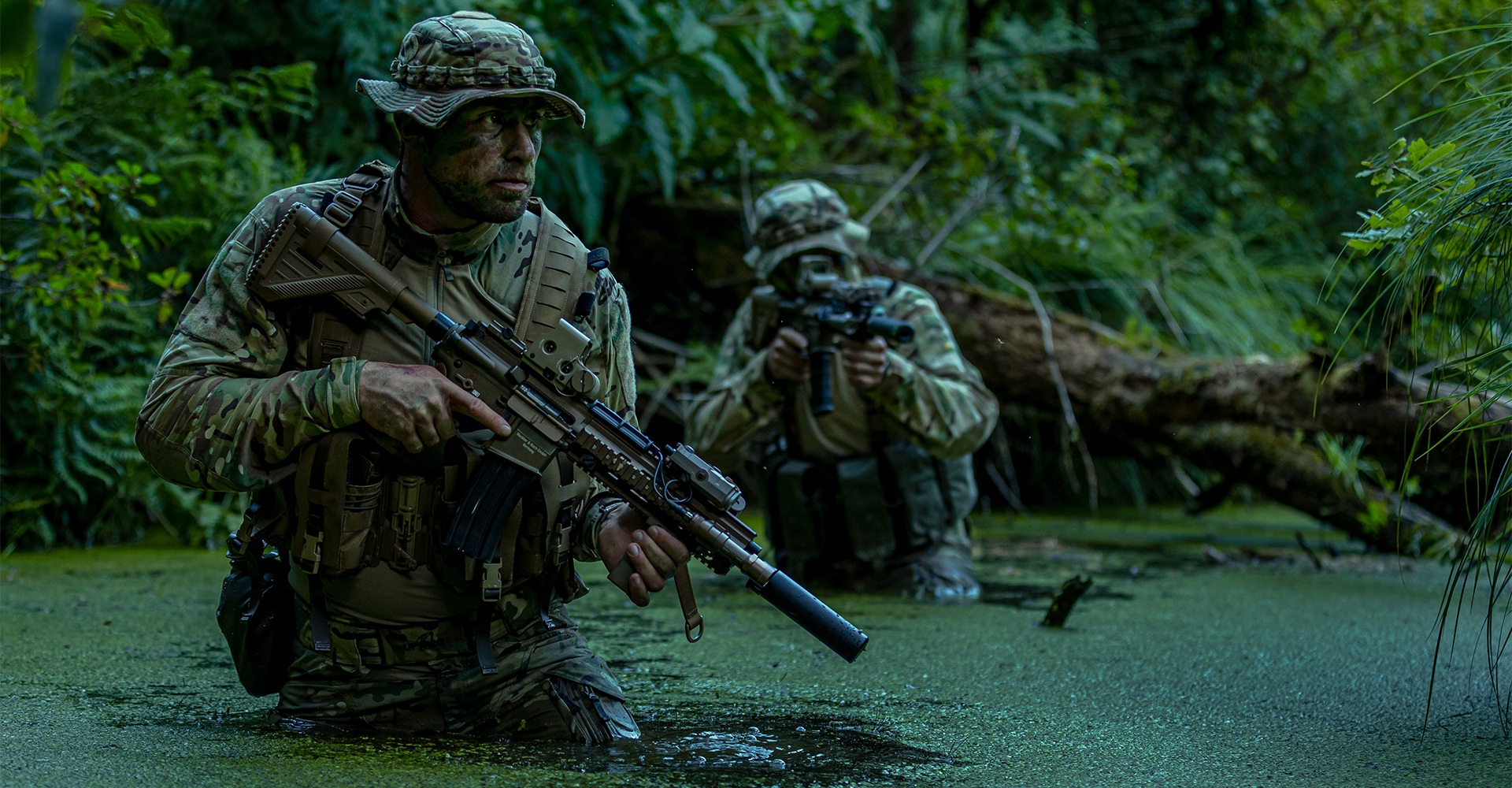
Gear That Works for the Jungle
Your equipment can be the difference between success and failure in the jungle. Choose equipment specifically designed for these tough conditions:
- Clothing: Opt for long sleeves and pants made from lightweight, quick-drying fabrics like polyamide. Avoid cotton, as it retains moisture and can weigh you down. Clothing with insect-repellent treatment provides added protection. For more on fabric choices, check out Polyamide vs. Cotton: What’s Best for the Tropics, which discusses which materials are best suited for the challenging jungle environment.
- Footwear: Choose boots that provide excellent grip and drainage. Non-waterproof boots with drainage holes are preferable, as they allow water to escape and keep your feet dry. Make sure to break in your boots before heading out to prevent blisters.
- Shelter: A hammock with an integrated mosquito net is a must-have. It keeps you elevated off the ground, away from insects, and offers insulation during cooler nights.
- Insect Repellent: Apply repellents to exposed skin to keep bugs at bay. Always test products in advance to avoid allergic reactions or damage to your gear.
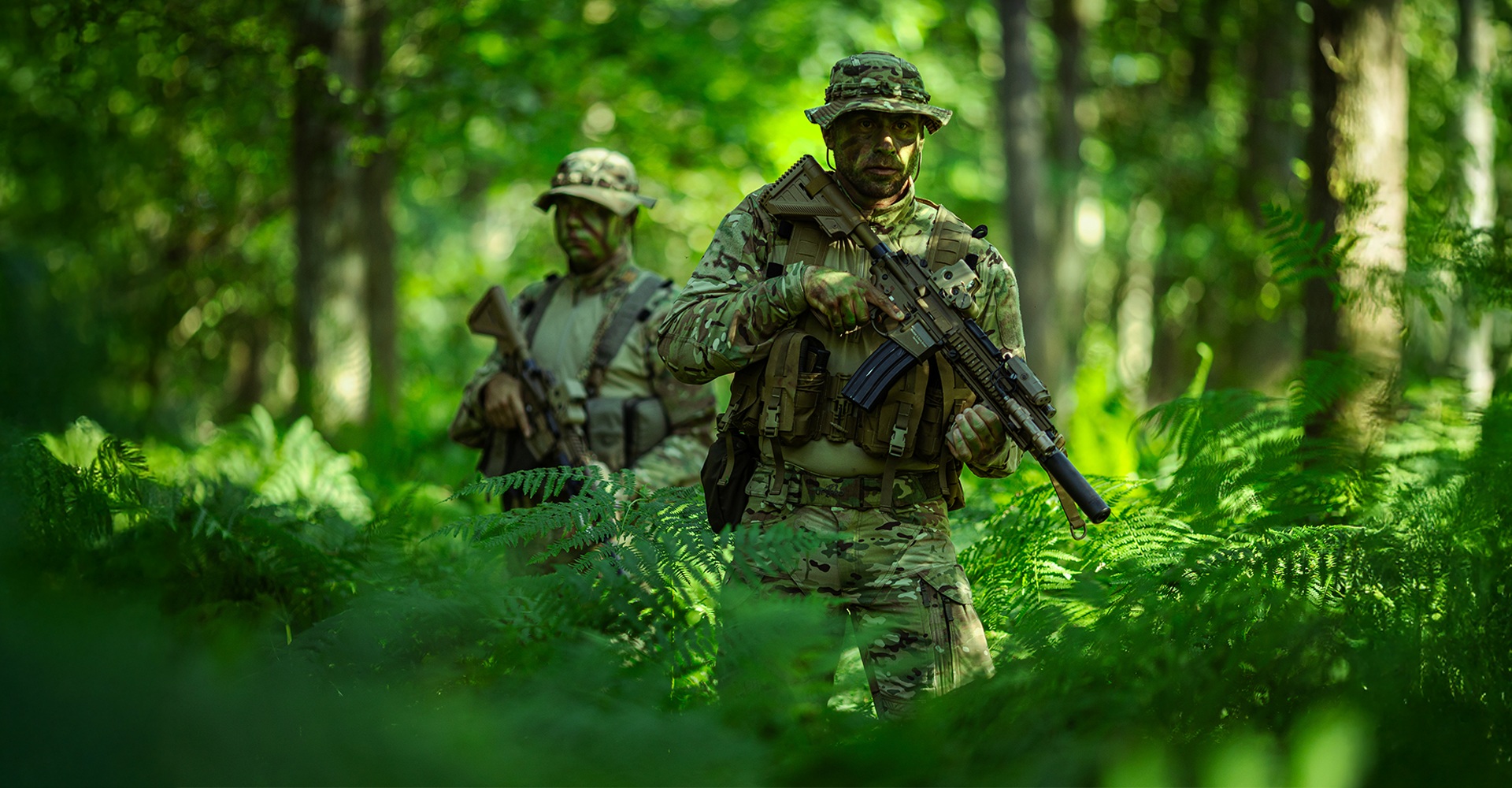
Staying Healthy in the Jungle
The jungle’s harsh climate heightens the risk of illness and injury. Staying healthy is not optional—it’s a survival necessity. Here are some essential tips for maintaining your health:
- Foot Health: Wearing inadequate footwear or neglecting foot hygiene can distract you from your mission and lead to discomfort, affecting your performance. Keep your feet clean, dry, and use powder to avoid fungal infections and other serious issues.
- Disease Prevention: Protect yourself against diseases like malaria and dengue fever with preventive medications and insect repellent. Monitor for symptoms and act quickly if you fall ill.
- Injury Management: Treat cuts and scrapes immediately to prevent infections. Carry a well-stocked first aid kit and know how to use it.
- Hydration: It's vital to stay hydrated to prevent heat exhaustion. Drink water regularly and be alert for signs of dehydration, such as tiredness or dizziness.
Read about how poor-quality gear can impact your health and readiness in How Torn Field Pants and the Suriname Jungle Humbled a Marine, where we discuss real-world lessons from the field.
SUBSCRIBE TO UNLOCK OUR EXCLUSIVE CONTENT
Enter your email and get timely updates and relevant intel on tactical topics directly to your inbox.
You are signing up to receive updates via e-mail from which you can opt out at any time. Visit our privacy policy for more info.
Regular Assessments
Keep track of your readiness with regular evaluations:
- Fitness Tests: Create simulations of jungle conditions to assess your endurance, strength, and agility.
- Scenario Training: Practice decision-making under pressure with real-life scenarios. After each session, review and improve your strategies.
- Peer Feedback: Work with your team to pinpoint both strengths and areas for improvement.
- Cognitive Skills: Disorientation is common in dense jungle environments. Practice using route cards and visible landmarks to enhance your navigation skills.
Key Steps for Jungle Warfare Readiness
Preparation begins long before setting foot in the jungle. Following these steps can significantly improve your odds of survival and success:
- Know Your Exit Strategy: Have a clear plan for how to get out before you step into the jungle.
- Map Your Route: Get to know the terrain. Route cards, maps, and navigation skills are crucial since technology can often fail beneath the thick jungle canopy.
- Plot Casualty Extraction Points: Identify areas along your route that could serve as evacuation points in case of an emergency.
- Acclimatize: Before undertaking long-range patrols, spend time adapting to the jungle environment. Begin with shorter outings to build your endurance.
- Gear Up Wisely: Choose reliable gear that has been proven effective. Standard issued kits may not always meet the specific needs of jungle warfare, so select your equipment carefully. Check out UF PRO’s Striker TT BDU, designed specifically for the tropics, to ensure you’re ready for the toughest conditions.
- Carry an Emergency Pack: Essentials vary by region but should include a robust med kit and water purification tools. For emergencies, simple tools like industrial polythene bags can create clean water using sunlight to kill bacteria. Carrying a small bag of dried rice is also a practical survival measure—it can sustain you for weeks.
- Avoid Dead or Brightly Colored Food: Steer clear of anything that is already dead or brightly colored, as these are often indicators of toxicity.
- Test Food and Plants: Before consuming unfamiliar plants or fruits, perform basic skin and lip tests. Rub a small portion of the plant or fruit on a patch of skin (like your forearm) and wait a few hours to check for any allergic reactions, such as redness or swelling. You can also place a small amount on your lips and wait a few minutes to see if it causes any irritation or discomfort. If no reaction occurs, it's likely safe to eat. If there is a reaction, avoid consuming it.
- Study Local Threats: Be aware of the dangers posed by local wildlife and prepare with the appropriate medications for venomous encounters.
- Don’t Be Reckless: In the jungle, foolishness can be deadly. Always proceed with caution and intention.
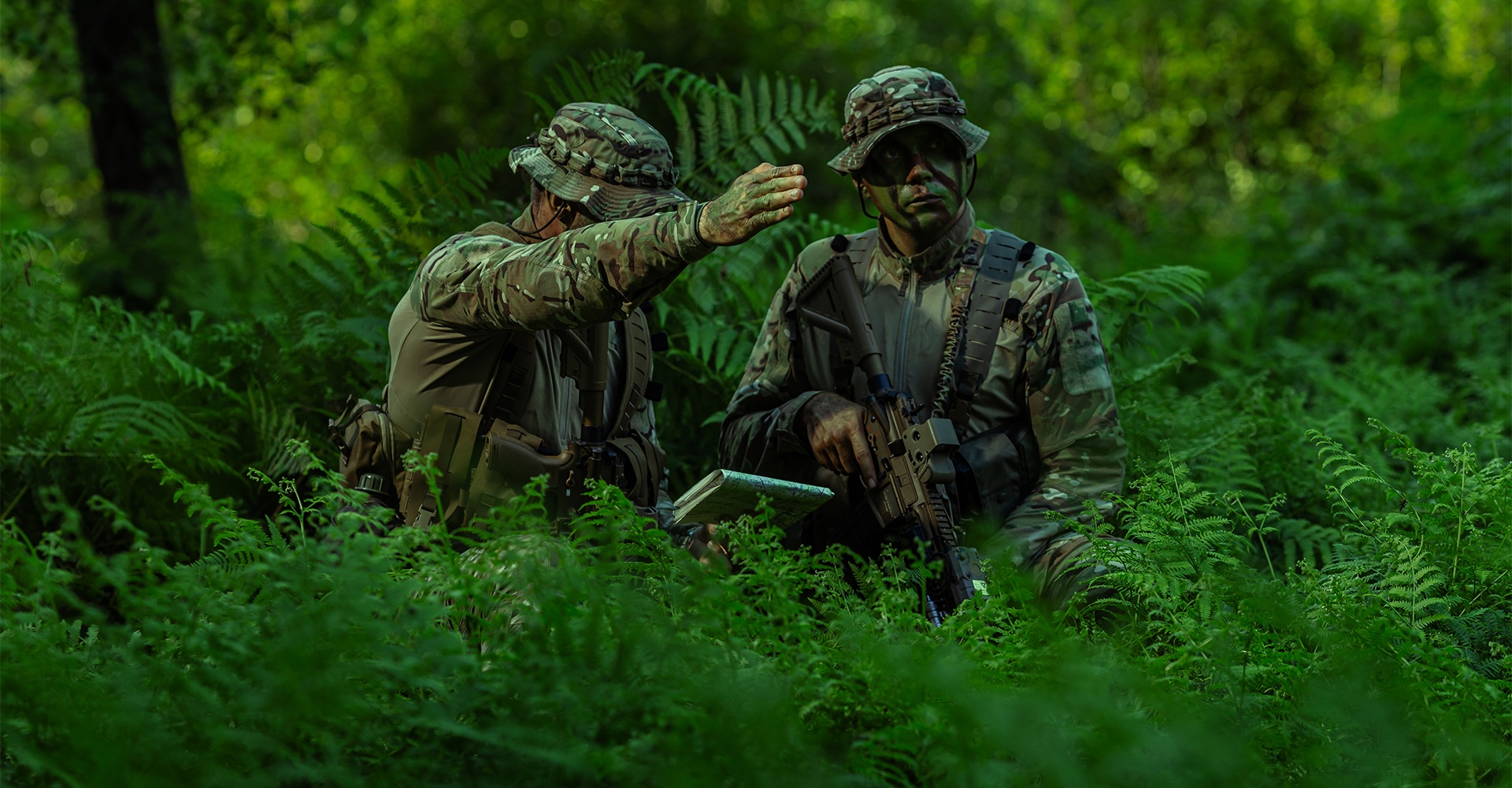
Conclusion
Jungle warfare is a demanding test of both physical and mental strenght. It demands thorough preparation, decisive action, and the ability to adapt to one of the toughest environments on the planet.
Respect the jungle—not as an adversary, but as a force to be understood and navigated. With the right mindset, preparation, and discipline, you can turn the jungle’s challenges into strengths, ensuring success in both survival and mission objectives.

